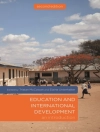In 2009, after seismic tremors struck the Italian mountain town of L’Aquila, survivors were subjected to a ‘second earthquake’—invasive media attention and a relief effort that left them in a state of suspended citizenship as they were forcibly resettled and had to envision a new future.
In Citizens without a City, Jan-Jonathan Bock reveals how a disproportionate government response exacerbated survivors’ sense of crisis, divided the local population, and induced new types of political action. Italy’s disenfranchising emergency reaction relocated citizens to camps and sites across a ruined townscape, without a plan for restoration or return. Through grassroots politics, arts and culture, commemoration rituals, architectural projects, and legal avenues, local people now sought to shape their hometown’s recovery. Bock combines an analysis of the catastrophe’s impact with insights into post-disaster civic life, urban heritage, the politics of mourning, and community fragmentation.
A fascinating read for anyone interested in urban culture, disaster, and politics, Citizens without a City illustrates how survivors battled to retain a sense of purpose and community after the L’Aquila earthquake.
Mục lục
Acknowledgments
1. Introduction: The L’Aquila Earthquake
2. The State of Emergency
3. Disaster Politics and the War Among the Poor
4. Contesting Urban Recovery
5. Activism and Grassroots Politics
6. Culture and Social Recovery
7. Mourning in Court
8. Conclusion: A Future for L’Aquila
Bibliography
Index
Giới thiệu về tác giả
Jan-Jonathan Bock received his Ph D in Social Anthropology from the University of Cambridge. He is editor (with Sharon Macdonald) of Refugees Welcome? Difference and Diversity in a Changing Germany and (with John Fahy and Samuel Everett) of Emergent Religious Pluralisms. Jan currently directs the Business Council for Democracy (BC4D) for the Hertie Foundation, Germany.












